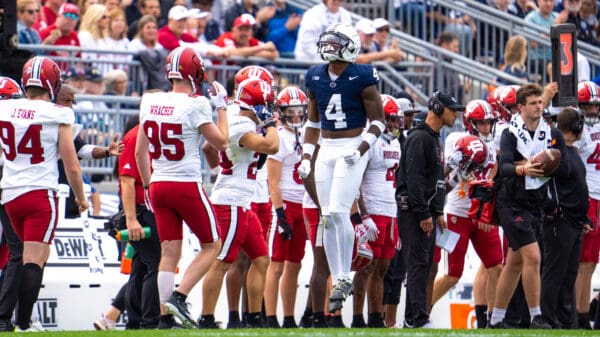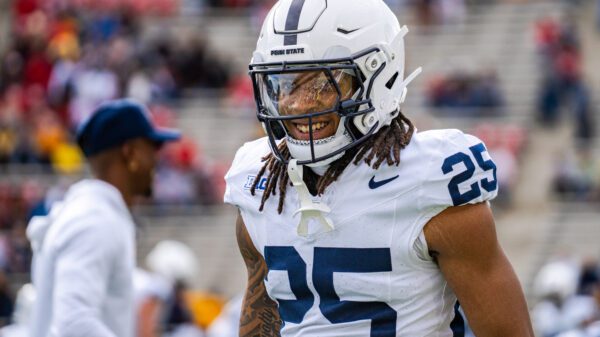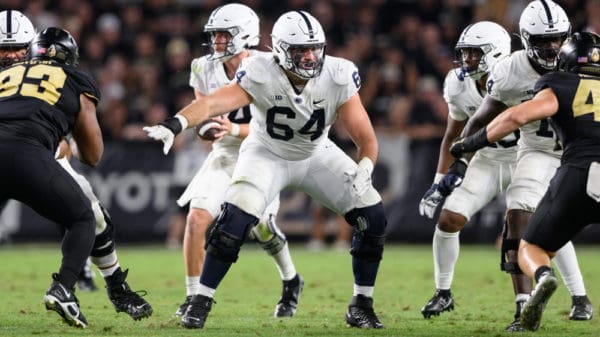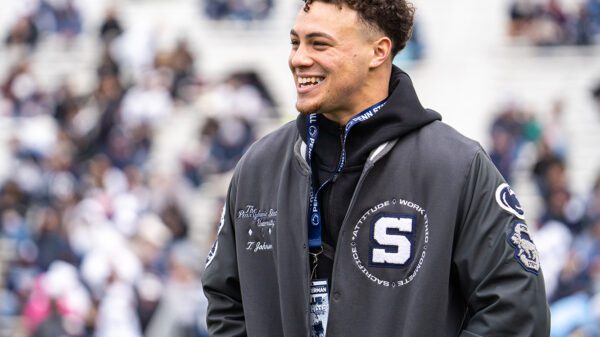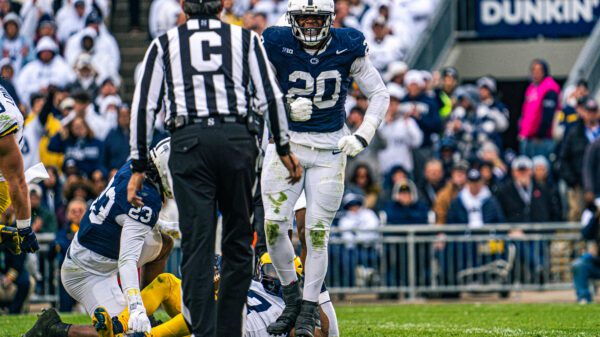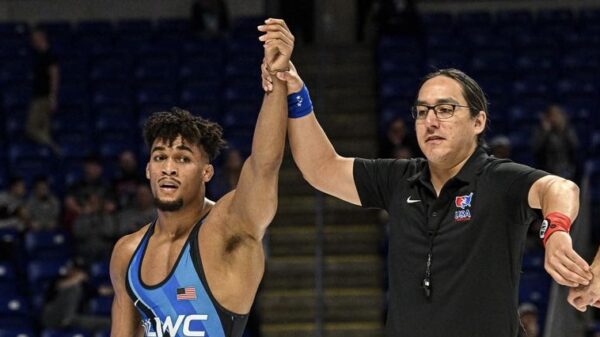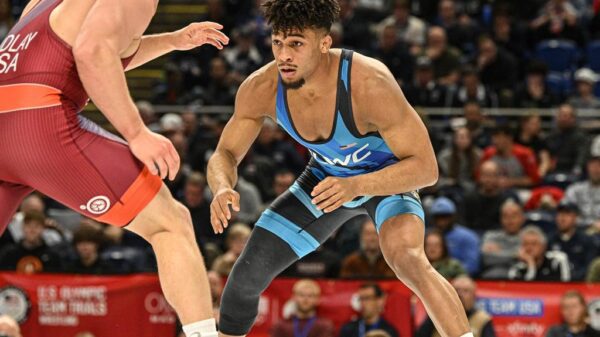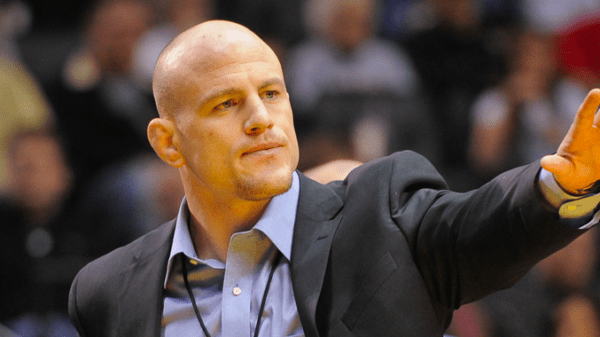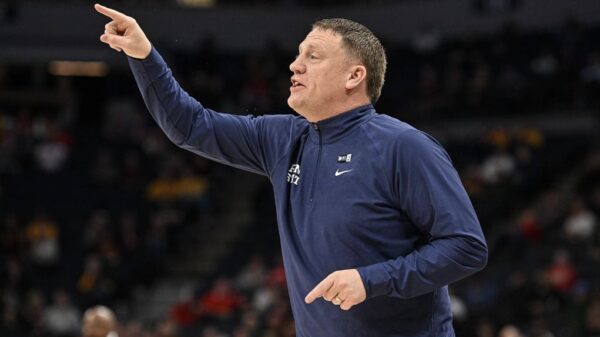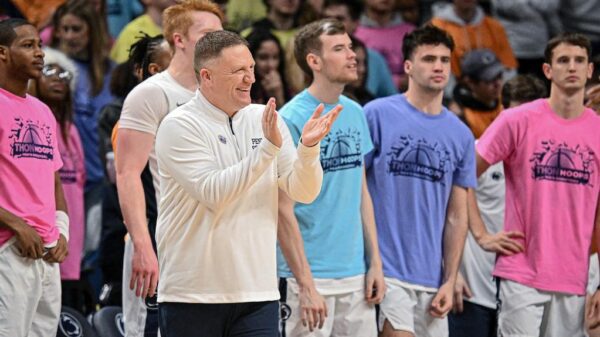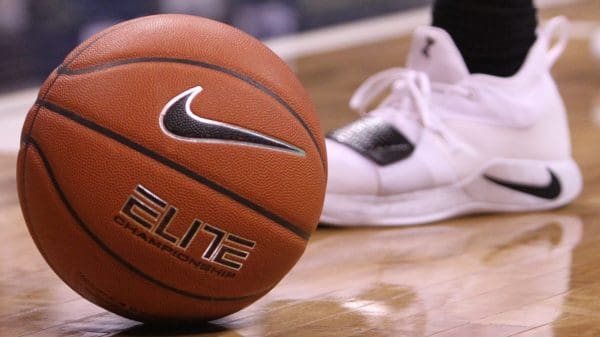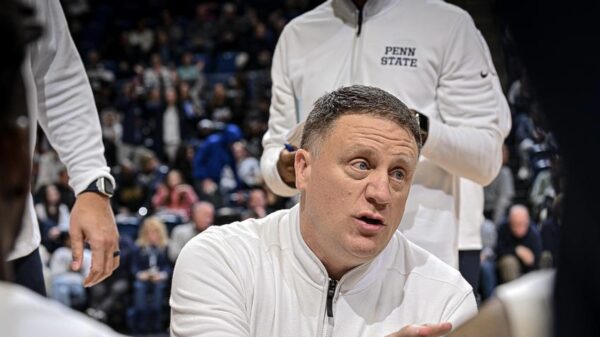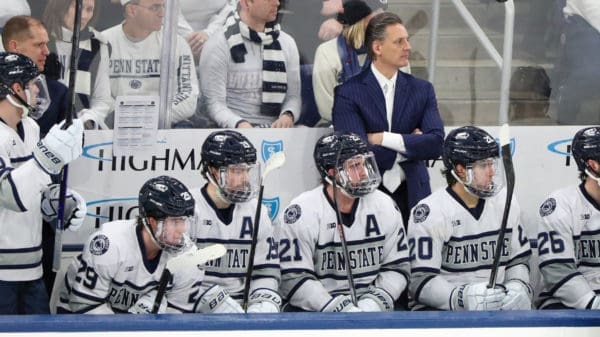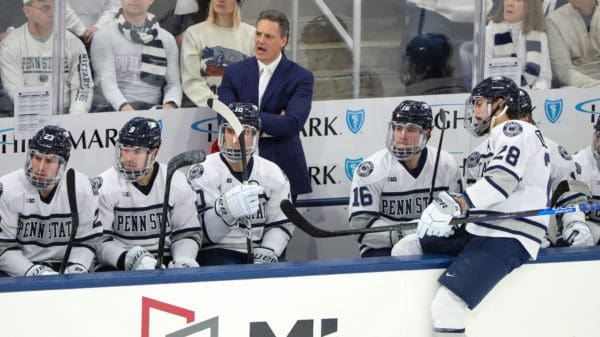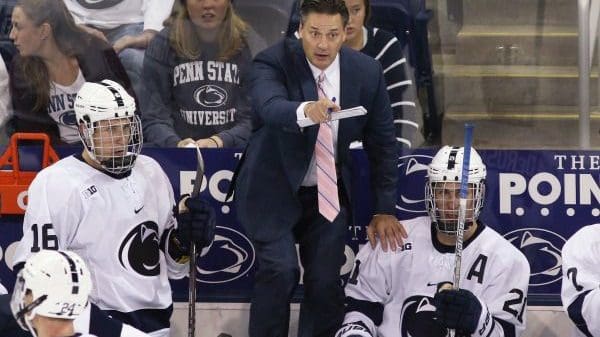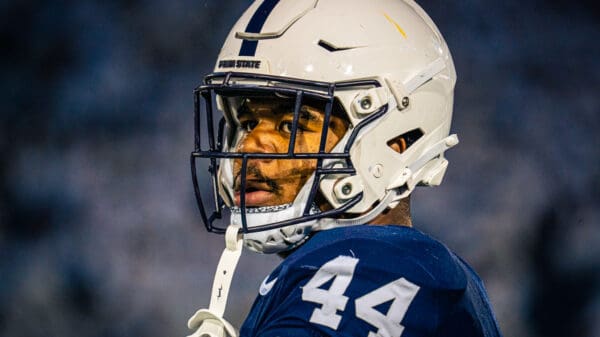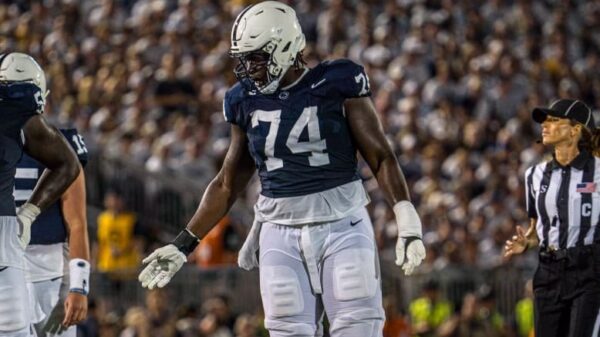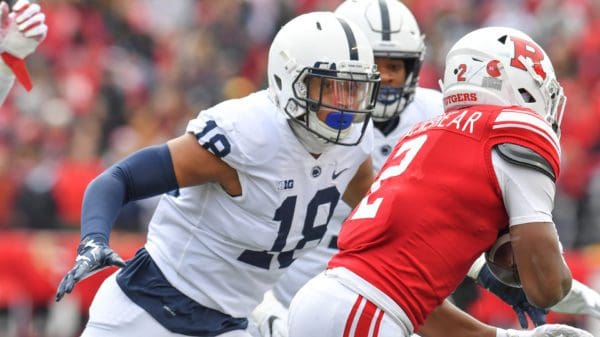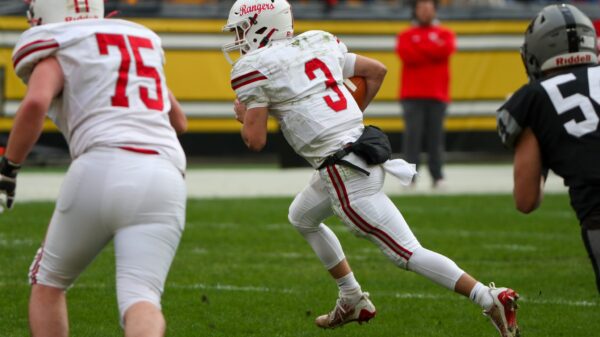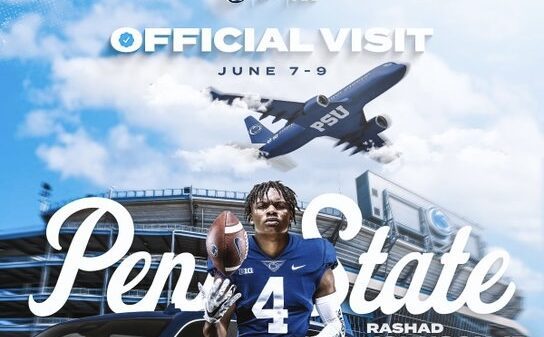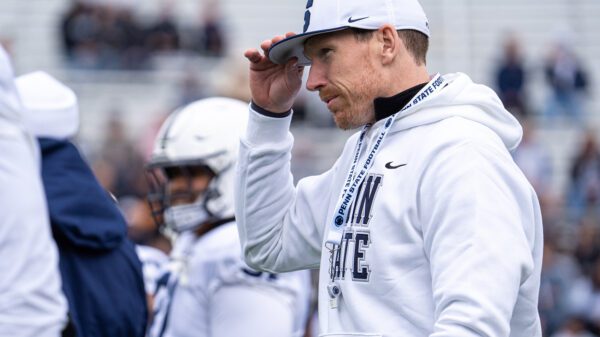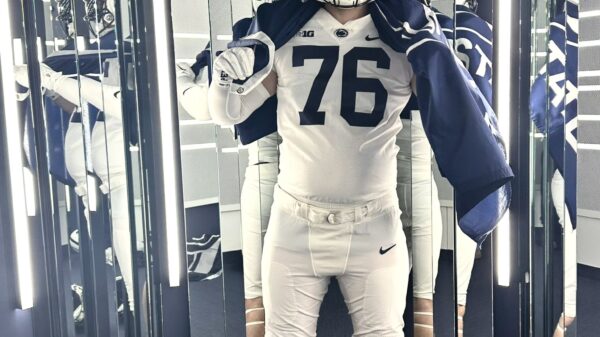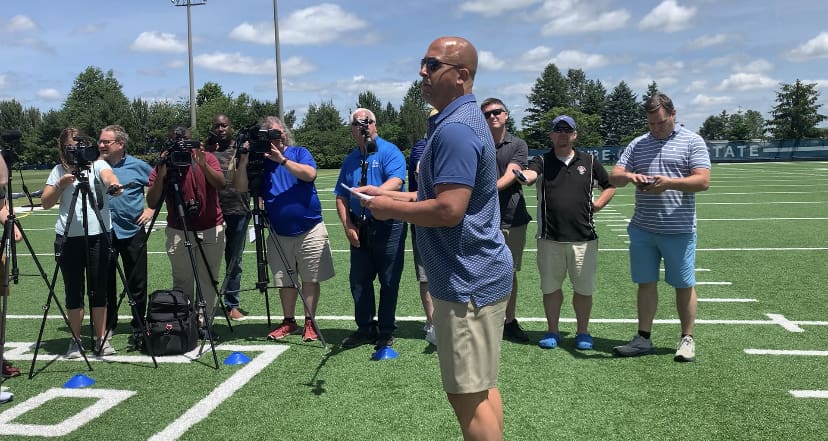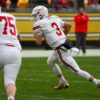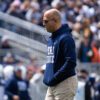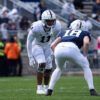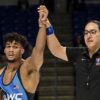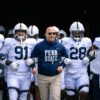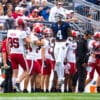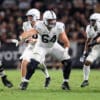INDIANAPOLIS — When it comes to college football scheduling, Penn State coach James Franklin considers himself a traditionalist.
But he’s not shying away from the sport’s changing realities.
With the Big Ten’s upcoming additions of USC and UCLA coming in 2024, Franklin knows that the days of Penn State playing most of its games in the Northeast aren’t coming back, and he’d much rather embrace what’s coming on the inside than not having a seat at the table.
“I still feel myself wanting that (regionalism), but college football has changed dramatically, and you’d better be changing with it,” Franklin said at Wednesday’s Big Ten Media Day session. “It’s changing whether you want it to or not, and obviously, some other conferences have made some decisions where we needed to as well.
“When you’re able to bring in two universities that are not only respected athletically but also aligned with the Big Ten from an academic perspective, that’s really valuable. At the end of the day, Penn State as a university and the Big Ten as a conference isn’t a winning-at-all-costs conference. We want to make sure our universities are well-rounded and be strategic about who we bring in.”
As the Big Ten’s 14 current members converged at Lucas Oil Stadium for the league’s annual media event, the Trojans and Bruins took up a large part of the conversation among players and coaches.
USC and UCLA won’t officially join the Big Ten until August 2024 and won’t even play against a Big Ten opponent before then, but commissioner Kevin Warren wasted no time discussing the league’s new members during his remarks Tuesday.
“These are two academic and athletic institutions and a strong location in Los Angeles with great rich history and tradition, who are innovative, who are forward thinking, who are bold, who will make us even stronger as a conference,” Warren said. “And I look forward to welcoming these two fine institutions into the Big Ten Conference, to working with them, to making our conference even stronger than it already is. Because where we are right now, I’m focused on being realistic about the state of college athletics, about accepting our responsibility to shape college athletics, lead college athletics, fortify college athletics, to be bold, to be strong, to be innovative.
“USC and UCLA will come in as full members. We think that’s important for various reasons. They bring a lot of value to our relationship. They bring a lot of panache to our relationship, and we look forward to welcoming them into the Big Ten family here in 2024. There’s a lot of work to be done between now and then.”
One of the main things is figuring out scheduling and travel.
Outside of Penn State, only Maryland and Rutgers face a longer trip to Los Angeles when USC and UCLA become Big Ten members.
But neither Maryland coach Mike Locksley nor Rutgers coach Greg Schiano seemed concerned about how their players will handle the travel.
“It doesn’t matter,” Locksley said. “We charter 757s, we get on and they fall asleep and wake up three or four hours and we’re in Cali. The biggest adjustment for us is the time frame, and I would hope that when you add these teams, the powers that be with Big Ten scheduling take into (account) that if you play an 8 p.m. West Coast game, you don’t play a 12 p.m. Eastern game the following week.”
In Rutgers’ case, the school has Schiano’s personal experience in its corner.
When Schiano coached the Tampa Bay Buccaneers, his team faced travel to Oakland and Seattle followed by an immediate home game the following week, giving him a blueprint for when Rutgers faces those trips.
“I do think that experience will help, and we’ve spent a lot of time on what’s the best way to handle the travel,” Schiano said. “I think everybody will do that. One thing about football coaches is that they’re a little maniacal, and you kind of over-research it. The issue that you get into is usually too much information as opposed to not enough.”
With the league set to have 16 members in two years, one thought in play is the possibility of realigning or even ending divisions in order to keep teams in the same league from going many years without facing each other on the field.
As one example, Indiana coach Tom Allen has held his current job since 2016, yet last year marked the first time he had ever coached a game at Iowa’s Kinnick Stadium.
“If I had to predict that, people seem to agree that (playing teams more often) would be a good thing,” Allen said. “At the end of the day, when you look at your schedule, you try to find the best way to build the best team and get as many wins as you can. I think that’s creating a difference of opinion as far as who wants to play who.
“To me, if you just want to say what’s equitable, you play everybody the same amount of times. That, to me, makes a lot of sense, but I haven’t always felt that way. You change over time the way you see things, and right now, we’ve been playing some of the best teams in the history of college football every year in our division. You don’t back down from that, but I think that as there’s change, there’s no doubt that’s going to be part of the conversation.”
At the same time, several league members have expressed a desire to protect league rivalries, which might not always be possible.
A program like Penn State, which only has Ohio State and Maryland as real rivals in the Big Ten, would likely keep all of its desired rivals, but the same can’t be said for others.
“I hope we protect rivalries,” former Wisconsin coach and current Big Ten special advisor Barry Alvarez said. “When we were back in the Legends and Leaders divisions, we lost Iowa, and that wasn’t fair for our fans. I hope we don’t go through that again.”
But Iowa coach Kirk Ferentz wasn’t focused on trying to save any matchups because his Hawkeyes have too many to protect all of them.
“The one thing about expansion is that unless we play a round-robin schedule, everyone’s going to have a squawk,” Ferentz said. “I’m so beyond worrying about all that stuff. It’d be wonderful if we could play all the border teams, but I think that train is beyond the station.”
Franklin didn’t dismiss protecting any rivalries, but he took an eye toward the possibilities of the future rather than worrying about saving traditions.
“I’m embracing it, and I think there’s going to be a lot of excitement about some games that our fans, alumni and lettermen haven’t been able to see, such as Penn State-USC,” he said. “I hope as many of those games are at home as possible, but I think it’s a good thing for our conference and makes sense in the current landscape of college football.”

